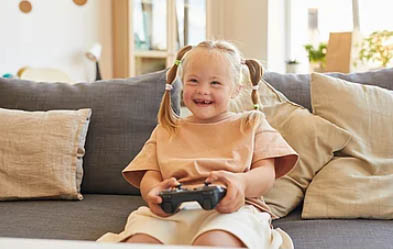Video games have become increasingly popular as a tool in behavioral therapy, particularly for individuals with autism. Here are a few reasons why video games can be effective in behavioral therapy:
- They can provide a fun and engaging way to teach skills: Video games can be a fun and engaging way to teach a wide range of skills, such as social skills, communication, problem-solving, and more. By presenting these skills in a game format, therapists can make learning more enjoyable and motivating for clients.
- They can be customized to meet individual needs: Video games can be customized to meet the unique needs and goals of each individual. For example, a therapist can choose a game that focuses on a specific skill that the client is working on, or they can adjust the difficulty level to match the client’s ability.
- They can provide immediate feedback: Many video games provide immediate feedback on performance, which can be helpful for reinforcing desired behaviors and skills. This can help to increase motivation and encourage ongoing progress.
- They can be used to promote social interaction: Some video games, such as collaborative games or virtual reality games, can promote social interaction and help individuals with autism practice social skills in a more controlled environment.
- They can be used to promote generalization: Video games can be used to promote generalization of skills, which means transferring skills learned in therapy to real-life situations. For example, a therapist can use a game to teach a client how to ask for a drink at a restaurant, and then have the client


I’ve found that video games can be a fun and engaging way to teach a wide range of skills, and they can be customized to meet the unique needs of each client. It’s amazing to see the progress that clients can make using video games as a tool in therapy. I completely agree with the point about video games providing immediate feedback. This has been especially helpful in reinforcing desired behaviors and skills with my clients. They are always so motivated to do well and improve their performance in the games.
I think video games can be a great way to promote social interaction and practice social skills for individuals with autism. Collaborative games and virtual reality games can provide a controlled environment for practicing these skills, which can be especially helpful for those who may struggle with social interactions in real life.
Using video games to promote generalization of skills is effective. It’s one thing to learn a skill in therapy, but it’s another thing entirely to be able to apply that skill in real-life situations. By using video games to practice these skills, therapists can help clients transfer their learning to real-life situations, which is so important for ongoing progress.